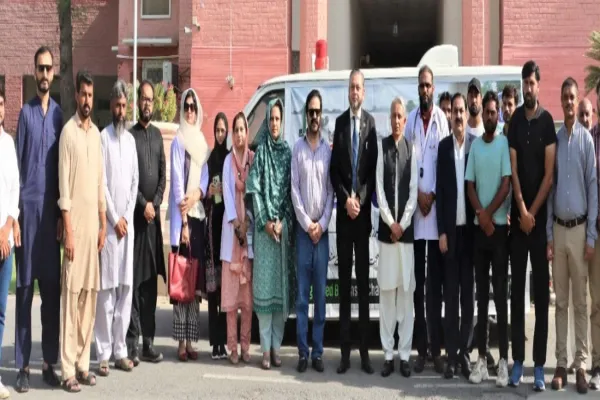i NEWS PAKISTAN
The flood situation in Punjab is gradually normalizing as water levels in major rivers recede, according to the Provincial Disaster Management Authority (PDMA).However, the United Nations has warned that Pakistan faces a “grave humanitarian crisis,” with millions of people displaced by record monsoon rains and flooding.A PDMA spokesperson said water levels in flood-hit areas are rapidly decreasing. The flow in the Indus, Jhelum, Ravi, Chenab, and Dera Ghazi Khan rivers has returned to normal.
The water situation at Panjnad is also reported as stable.However, moderate flooding continues at Ganda Singh Wala in the Sutlej River, while low-level flooding is observed at Sulemanki and Islam headworks. Relief operations are underway in affected areas, with local administrations on alert under the instructions of the Punjab chief minister. Citizens have been advised to contact helpline 1129 in case of emergencies.
Despite improvements in Punjab, the United Nations has painted a grim picture of the overall situation in Pakistan. Carlos Geha, head of the UN Office for the Coordination of Humanitarian Affairs (OCHA), said over six million people have been affected, with more than 2.5 million displaced.He called the disaster a “grave humanitarian crisis” and urged the international community to step forward with urgent assistance.
Geha warned that what is visible now is only “the beginning” of the devastation.According to UN figures, nearly 1,000 people have died since the monsoon rains began in late June, including 250 children. Punjab remains the worst-hit province, with 4.7 million people affected after India released water from its dams. Entire villages have been submerged, while roads, bridges, and nearly 2.2 million hectares of farmland have been destroyed.
The loss of crops has pushed wheat flour prices up by 25% in just the first week of September. “These are the farmers who feed the entire country. Today, they have neither land nor livestock nor any support,” Geha said.The UN has released $5 million in emergency aid, with an additional $1.5 million allocated to local NGOs. However, officials warn that many rural communities remain cut off, with relief supplies only reaching them by boats or helicopters.
The floods have also heightened the risk of outbreaks of malaria, dengue, and cholera. Geha stressed that immediate relief must be coupled with long-term recovery efforts to help millions of victims rebuild their lives. He reminded the world that Pakistan is not solely responsible for this disaster: “The countries most responsible for climate change must also bear responsibility for this crisis.”
Credit: Independent News Pakistan (INP)









